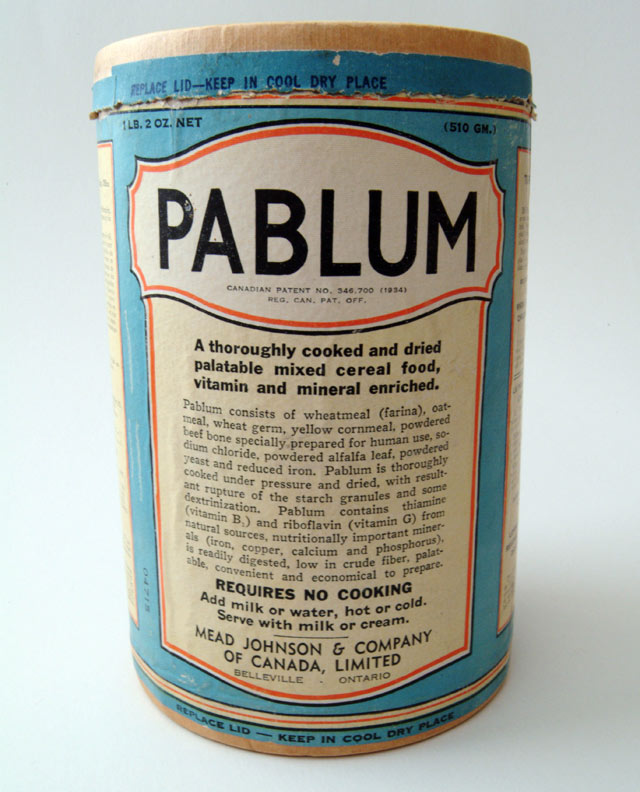
It’s been said that the key to becoming an expert in any field is to practice that specific task for 10,000 hours. But that’s a lot of time and your schedule is tight, so instead of dumping that workload on you, we talk to the experts, glean valuable morsels of their expertise, and then condense that knowledge into one informative and entertaining 10-minute nugget.
This week we’re more excited than Charlie in a chocolate factory to talk with perhaps the ultimate expert in search engine optimization, Aaron Wall. Aaron is the man behind the very successful book-turned-training-program site SEOBook.com. Type “SEO training” into Google and his site is the first to pop up. Read on for some great insight regarding content, SEO success, and even sports trading cards.
1. Is it true that we can trace your marketing expertise back to baseball cards? What’s the story behind that? And what’s the best card in your collection?
In 1989, when I was 10 years old, I started to hang out with a neighbor who was about 4 years older and he collected cards and got me into it. Of course this is within a few years of the peak of the bubble in baseball cards. I was going to card shows and so on within a year. I remember one guy had a “role a dice” game where you could win cards; it cost 50 cents and I kept being able to sell the things that I had won for more than the roll cost. I think after a few hours at his game I had a couple hundred dollars worth of cards for free by recycling some of the winners on through to other dealers at the show. There were also people who had nickel and dime bins when certain cards were hot, where you could buy a load of them for a dime each and then sell them to someone else for 50 cents to a dollar. That sort of trade/arbitrage (along with watching Beckett price guides and seeing prices rise and fall) led to also showing cards at flea markets and card shows by the time I was 16. I remember at one flea market a guy who always had fairly mediocre cards came over to show off a fat wad of cash he had made that weekend. What I felt was, well, I wouldn’t call it envy, but rather curiosity; it was a driver to see what he was doing. The core lessons there were organization by player and flat upfront pricing; those were the keys to driving sales. If someone was willing to pay decently for a card it was typically because they were collectors of that specific player, so it made sense to organize cards by player name. And then I had a few display cases by player name where any card in that stack was $1. It didn’t matter if the book price was 50 cents or $3– everything had that flat price.
Many of those same cards that people were willing to pay $1 for tended to be the ones they didn’t yet have of their favorite player. So the regular issue cards of players X and Y, those wouldn’t be too easy to sell, as the people who really collected those players likely already had them. But their weird oddball K-Mart exclusive or Upper Deck Fun Packs or Tombstone pizza, now those would sell great, simply because they were oddball cards that were relatively scarce. The exception was where you could sell the more mainstream regular versions of a player’s cards if you had the cards right after they were released, or if there was a reason people recently decided to start collecting them. Each year when new cards were released they would start out at pretty high values and then (with a few exceptions) generally trend downward over time, as people always chased what was new the next year. In terms of driving new demand for older regular cards of a player, sometimes a player having a great year would create demand for them and sometimes them being traded would create demand. There was probably no better example than Dennis Rodman being traded to the Chicago Bulls as an example of something that created a ton of demand overnight. I must have bought hundreds of his cards in common bins that were later sold using the above mentioned flat rate case idea.
I still had some better and more expensive cards too, but those were more for public relations and creating general demand–they didn’t sell often. But the cheaper ones sold like hot cakes to player collectors. Back then I certainly cared more for cards than money, so anything that was made was spent on further growing out the collection. Of course, in the years since prices for cards have imploded as the bubble burst. Even as the currency itself has significantly eroded in value over the past couple decades, some cards are available online on sites like COMC.com & eBay.com for a fraction of their old prices. A 1989 Upper Deck Ken Griffey Jr. can be had for $20 and a 1990 Leaf Frank Thomas can be had for $12. Either of those would trade at close to $100 a couple decades ago ($160 in today’s currency). Those 90% declines are actually better than most of the cards have performed. Some factory sealed sets like 1991 O Pee Chee Premier are under $8 today, when at their peak an individual 7-card pack would sell for nearly that much (and that’s before accounting for a couple decades of currency devaluation/general inflation).
In terms of my best card in terms of price, it is probably a 1993-94 Michael Jordan Finest Refractor. They sell for maybe $200 today. I had the opportunity to sell it for $450 in the past & probably should have. 😉
2. It’s always been tough getting people to pay for information on the web, but you’ve made it work big time with SEOBook.com. What’s the biggest lesson in successfully monetizing online content?
I think from the outside many people likely perceive the site as being more profitable than it is. We run a small community that caters toward the expert end of the market. If you are seeking to monetize aggressively, the best end of the market to go after is the newbie end of the market because there are hundreds to thousands of them in the market for every one expert. I once drew a pyramid that tried to express this. You can teach well-known stuff to newbies and seem like you are doing something new and innovative if a person is just starting out, but it’s much harder to market toward the experts because it is a much tinier audience and they are much more knowledgeable: you can’t sell those people a bag of smoke. When we first got started we sold an eBook that was probably geared more toward people new to the industry. That was not a conscious decision on my behalf, but rather reflected my newness to the market–how literal/easy things were back then and how much less adversarial Google was.
For years there was “do X and get expected outcome Y.” Now everything needs to be so hedged and qualified; a greater back and forth interaction is needed to understand the site and market, etc.
I think if you want to “monetize” web content, certainly it makes sense to cover things that change and topics where there is news, but it also helps to operate in an area that is not super saturated. The more saturated a market is the more people will want everything for free and the harder it will be to make a profitable business model.
3. In this post with Rand Fishkin, you discuss the problem of webspam. What’s the single best piece of advice you can give companies trying to build quality links and promotion back to their site?
If you do things that require knowledge of your industry, relationship building within your industry, and are hard to clone, then those are going to be more sustainable than efforts which are more paint-by-the-number that can be done by anyone.
4. It’s increasingly difficult for little guys (like local businesses) to get top 10 Google rankings — a trend you’ve called the “Walmartization of Google.” What’s the best tip for a new company, or small business, to develop meaningful organic traffic?
If your budget is small but your margins are decent, it likely makes sense to develop a presence on sites like Amazon, Etsy, and other similar sites in the short term to provide the cash flow needed to further build your brand strength and exposure of your own site.
5. How would you describe the relationship between yourself and the policy makers at Google?
If it exists at all, I certainly wouldn’t describe it as being formal. Another SEO told me that our blog posts had been brought up at weekly meetings with the founders a couple times, but I haven’t verified that and I doubt my writing has had any impact on Google’s course whatsoever. They are great at executing and tend to be at least a step or two ahead of their competitors at all times. Their mobile OS ran out in front of Windows, and even as Windows plays catch up there, Google is rolling out their ISP service around the country.
6. Your blog has rich, extensive, in-depth posts on a number of SEO issues. For companies trying to do the same with their blogs, how do you come up with ideas for the blog (i.e., decide what to write about)?
Most posts are driven by some combination of experience within the niche and reading broadly about history and markets in general. I also chat extensively with a few friends that have a pulse on the industry and participate in our forums where our members bring up some issues. So it’s really that diverse view and experience that surfaces many ideas.
I think the big issue with most blogs is incentive structure. If you have to post something every day, you are posting even when you have nothing to say. If you are paid a flat rate per post that leads to short blurbs. If you are paid by the word it can lead to more random stream of conscientiousness and repeating repetitive repetition. And there is less economic incentive than ever to post SEO advice publicly at this point. About a year or two ago I mentioned something along the lines that if a competitor has to be as good as you to beat you there is little risk of sharing, but if the algorithms are so biased toward promoting large corporate sites that the competition only needs to be 5% as good as you to fall over the finish line in front of you, then some stuff won’t be shared.
The economics of the search marketplace are determined by monopoly control of the market. If you are not always in 100% agreement with that monopoly, you are likely losing money if you put a lot of effort into sharing broadly publicly. Worse yet, their dominance is so pervasive that if you ever counter anything put out by the market monopoly you are seen as a person with sour grapes or a failure or such.
People desire and reward misinformed feel good pablum, so that is what they get.
Most the people who exercise critical thinking skills have either left the SEO field or dropped the label. I guess that means I am a bit of a masochist in some form.
7. Your SEO Book training program is one of the best. With the rapid change of the SEO industry, how do you keep it up to date?
We originally had an eBook for about four or five years, but as the algorithms become more complex, we decided it made sense to run an interactive community forum. The original model of selling an eBook was becoming obsolescent through a combination of increasing algorithmic complexity, requiring more back and forth; increasing algorithmic complexity requiring writing a book that would be so long that almost nobody would read it; increasing piracy, making it harder to sort out who paid vs. who did not and to provide ongoing assistance to customers. Our community forums allow us to discuss important ongoing changes without having to constantly update hundreds of pages of linear content in a book. We also provide a monthly newsletter too.
A wonderful side effect of having the paid community forums is that the anti-social behavior that is a norm in 1:1 email (especially among non-customers who want to try to goad you into giving them a living because they are rude and email spam you) doesn’t happen in paid community forums, because people who want to be abusive and act like a jerk would have to knowingly do it in front of other people. Those types of people are generally distrusting because they view others through the lens of themselves, thus those types of people self-select out of ever joining something like our community forums.
8. You offer personal SEO coaching services for $10 a day. What do your clients get when they hire you (besides the ability to brag that Aaron Wall is their personal SEO coach)?
Our community is so much more than just me. Our employees are great and our customers are typically far more knowledgeable than the employees at most marketing companies. Most of our customers tend to be a combination of directors of search marketing for companies, founders of SEO consulting firms and independent affiliates.
A virtuous aspect of a community forum is that those who are the most consistently helpful also get loads of help whenever they have an issue. We can’t all be experts at SEO, video SEO, paid search, PHP, viral marketing, etc., so it’s the combination of skills that we all benefit from.
9. What’s next for Google? What will be the next big change that webmasters can start preparing for now?
The big things they are doing now revolve around extracting information and cutting publishers out of the loop wherever possible. For example, look at their new image search service and how they claimed to be sending publishers more traffic when in fact it drastically dropped traffic to the publisher websites. That same sort of stuff is going on with the knowledge graph and some various vertical markets. Your video probably looks better when it is hosted on YouTube. Your book content reads better when it is on books.google.com.
Last week I saw Google’s digitized version of an auto-generated “book” compiled off of scraping Wikipedia pages ranking in the search results. That’s pretty egregious.
Google first sucked value out of the link graph. Right now “brand” is largely seen as the solution, but if you look at the MFA formatting on some newspaper websites, it soon becomes clear that Google is sucking the value out of brands too. A week or so back I saw a blog post on Search Engine Land where they mentioned Google was testing a SERP layout where they remove the URL from site listings in the SERP. When people have no idea what they are clicking on, how is that a good user experience (particularly in light of the recent wave of website hacking)?
Google not only wants to rank information, but they want to be the host of it, so they can better track user experience and use all media consumption to drive incremental ad targeting.
They need to figure out what their equivalent for Android is in the TV market. I wouldn’t be surprised to see them buy Mediaocean in the next couple years.
10. How has your life changed since the Media Shower blog named you one of the Top 5 SEO Gurus? Or if that list is too long with stories of incredible ecstasy, you can just tell us how your life hasn’t changed since that momentous day.
There’s been too much ecstasy to mention it all…it is like a never-ending rave of sorts. This song is on loop and even my dog has it memorized. …back to reality… I am a pretty boring person. Outside of coffee, my days tend to be pretty flat and mellow. Maybe I go for a walk here or there, do email, work on marketing a few sites and play some games or such. I think I sort of make yogurt and oatmeal look relatively exciting, which I guess means I am now ancient. 😀
When not conquering the Internet or lovingly admiring his 93-94 MJ card, Aaron Wall also regularly dispenses SEO-related wisdom and wit to his nearly 70,000 Twitter followers. Find him here: @aaronwall. Thanks so much for the quality time, Aaron!


